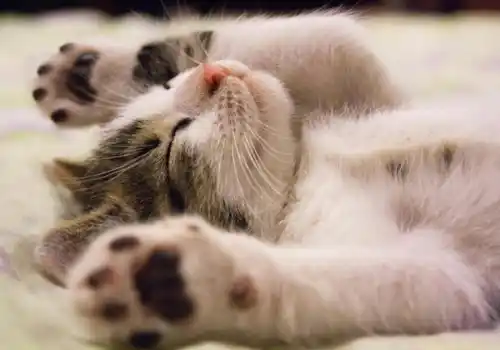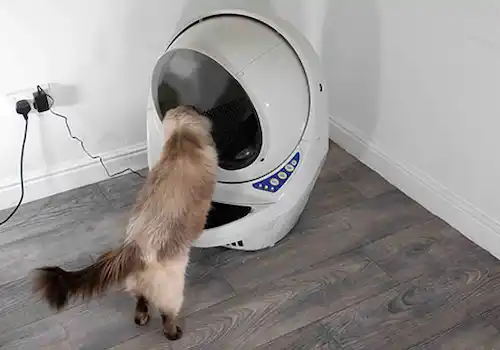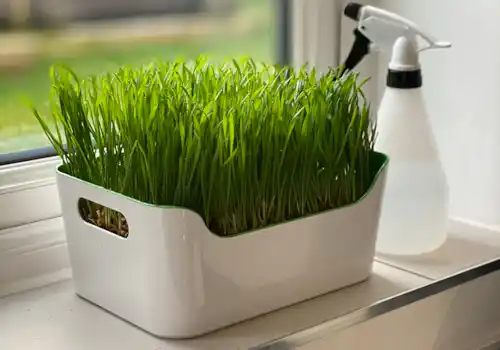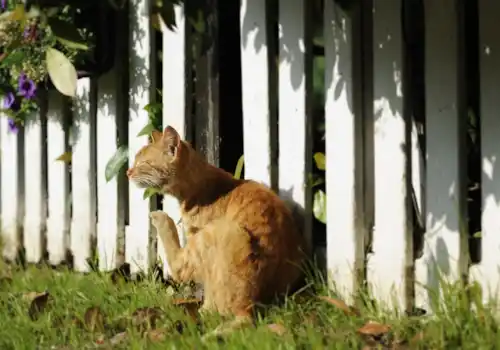Does your cat have a habit of spraying? Read our top 10 tips on how to stop your cat spraying on everything.
In the wild, there is enough space for cats to have their own territories, which they will guard against intrusion by other cats. One of the ways they do this is through scent marks. Spray marks are used by cats to time-share access to areas that are used by more than one cat. For example, a strip of land that two cats use to move between areas of their extended territory. The spray mark indicates the identity of a visiting cat as well as when that cat was there. By following a routine of visiting the same places at the same times of day, cats can avoid meeting each other face to face.
In an urban domestic setting, the space available to cats is limited and instead of having large personal territories, each cat will have a patchwork of small spaces. This means that cats often cross each other's gardens, moving between parts of their territory. In an attempt to time share space, cats that see other cats passing close to their home will resort to spray-marking around external windows and doors, and objects that are close to them. Spraying can extend to internal corridors and doorways if the home has been invaded by a local cat looking for food and shelter.
In multi-cat households with cats that do not get on well, spray marking will happen when the resident cats try to share indoor space between them. This leads to spray-marking around internal doorways and corridors.
Here's our top 10 tips on how to stop your cat spraying:
- Give your cat free access to food, so they can eat whenever they want to.
- Install Feliway diffusers in parts of the house where your cat spends most time.
- Make a map of all the places where your cat has ever sprayed, and clean all of them twice, on consecutive days, to remove as much of the odour as possible. From then on, check all locations daily and clean them as soon as you see any mark.
- The best cleaning method is to wipe away residue with paper towel, then spray the area with water and dry with more paper towel. Next, spray with a 10 per cent solution of biological washing powder in water, and dry with paper towel. Lastly, spray with surgical spirit.
- Wash sprayed fabric and dispose of items that cannot be easily cleaned. Clean the carpet near to places that have been sprayed, to remove any residual odour.
- Use an electronic or microchip cat flap in order to keep other people's cats out.
- Make your garden attractive by providing shelter, places to hide and climb, as well as a toileting area.
- Discourage other cats from your garden with special cat-proof fencing.
- If there are particular spots by external windows where your cat sees other cats and regularly sprays, block the view using glass etch spray or film.
- If spraying has been going on for more than a few months, you may need to consider medication for your cat, in which case talk to your vet and consider calling in a feline behaviour expert.
Advice by behaviourist Jon Bowen.







